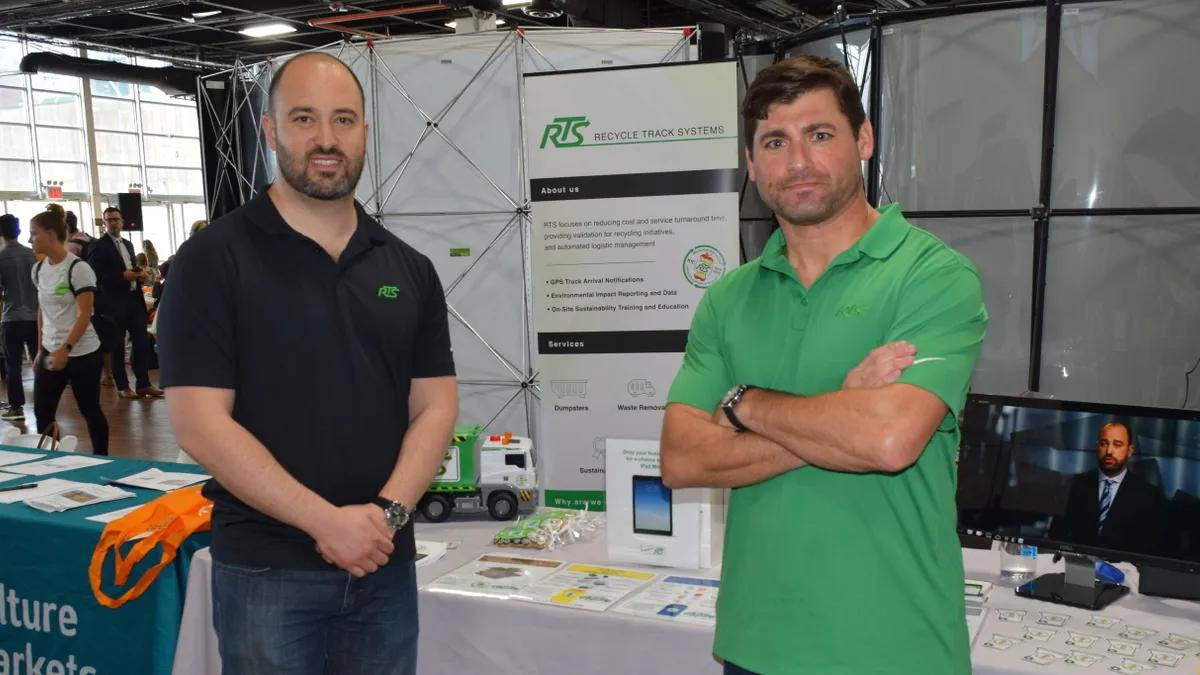Dive Brief:
- Recycle Track Systems (RTS), a New York-based technology company that offers on-demand and sustainability-oriented collection service to commercial customers, has recently opened two new offices in Philadelphia and Tysons Corner, VA, to serve the Washington, D.C. market.
- Next, the company has set its sights on offices in Chicago and Boston. Service providers in other markets are currently working with RTS on a case-by-case basis after going through their standard vetting process.
- Recently, Lew Frankfort — the former chairman and CEO of Coach — joined the RTS board. According to a press release, Frankfort will be serving as "both an investor and advisor."
Dive Insight:
Since launching in 2014, RTS has quietly grown its presence in the New York market and lined up accounts with some of the city's larger companies. The pitch to customers is that they can offer real-time tracking, service confirmation, sustainability data and on-site education to help achieve high diversion targets. The pitch to service providers is that they can get them access to clients such as Whole Foods and the Barclays Center that might otherwise be out of reach.
This latest growth comes after RTS became a certified B-Corp in March and announced $11.7 million in Series A funding in July. Though the company had already been operating outside of New York, this investment and growing interest motivated them to make the expansion official.
"We see a need for the type of service we’re proving regarding sustainability stacking, training and high service quality very similar to New York City," CEO Gregory Lettieri told Waste Dive. "We believe in feet on the street. So we believe that our RTS employees need to be there for hauler relationships as well as customer relationships and we don’t believe in the virtual approach."
Following New York's recent "zero waste" push, both Philadelphia and Washington D.C. are also in the early stages of rethinking their recycling efforts. Expanding organics processing infrastructure is a priority for both cities, but Lettieri said the need is even more acute in the Philadelphia market. This point has been reinforced by recent research on local opportunities and some groups have called for statewide food waste recycling laws in Pennsylvania to improve options.
RTS has found particular success with clients that want help maximizing their diversion — or are required to by state or local regulations — and their expansion pattern has followed suit. Last year, Chicago announced a commercial recycling mandate. Boston could eventually set its own "zero waste" goals and is currently covered by a commercial organics diversion mandate in Massachusetts. RTS is also planning to exhibit at the upcoming New Jersey State League of Municipalities Conference, following the enactment of multiple new laws regarding food waste .
Among the industry's larger companies, any business model that doesn't directly involve ownership of vehicles and processing or disposal infrastructure is often dismissed. In some cases this has even led to clashes over customers, legal and otherwise, around the country. So far the RTS team — which includes multiple industry veterans — has been glad to expand without purchasing a single truck or worrying about the direct effects of commodity prices. They've found a sweet spot cultivating relationships and navigating what can often be different worlds between higher end customers and independent haulers. The results of how that model scales are officially now of interest beyond just the New York market.















